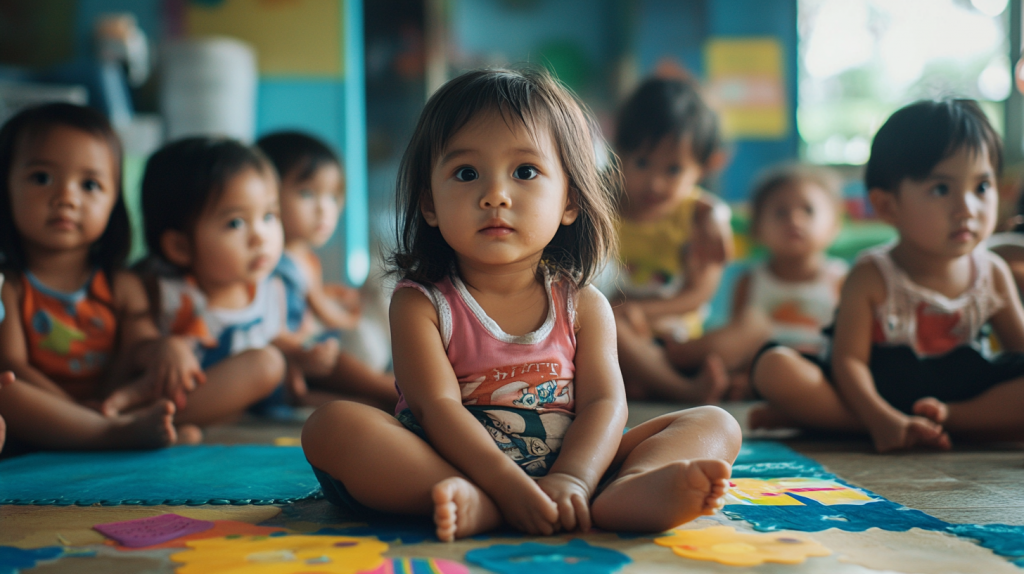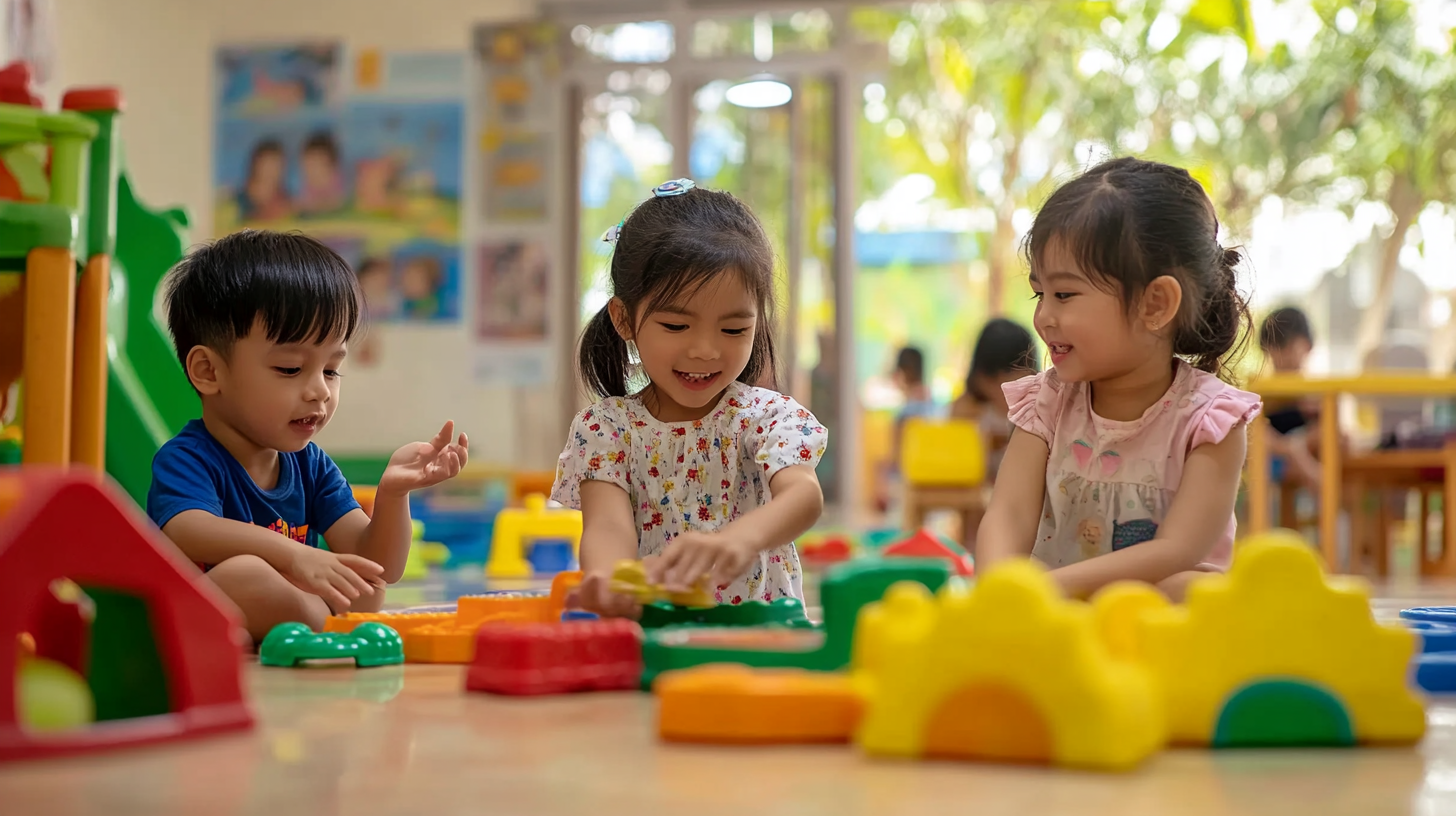Cultural diversity in daycare programs refers to the inclusion and representation of various cultural backgrounds within the curriculum and activities. It is about more than just acknowledging differences; it’s about celebrating and learning from them. By doing so, children gain a broader perspective on the world and develop important social skills such as empathy and acceptance. These skills are crucial for their future interactions, both personally and professionally.
Beyond the surface level, embracing cultural diversity involves a commitment to understanding different cultural values and practices. It requires educators to continuously educate themselves about the various traditions, languages, and customs of the families they serve. This knowledge helps in creating a more inclusive curriculum that respects and reflects the diversity within the classroom, ensuring that every child sees their culture represented and valued.
Why Is Cultural Diversity Important in Childcare?
Cultural diversity in childcare programs helps children understand that differences should be celebrated rather than feared. It prepares them for the diverse world they will grow up in and helps to break down stereotypes and prejudices before they can take root. Exposure to different cultures at an early age encourages open-mindedness and adaptability, which are crucial skills in today’s interconnected world.
Furthermore, by experiencing cultural diversity firsthand, children learn to appreciate the rich tapestry of human experiences and perspectives. They become more curious about the world around them, asking questions and seeking to learn more about how other people live. This curiosity fosters a lifelong love of learning and helps children grow into adults who are not only tolerant but also advocates for inclusivity and equality in their communities.

Ways to Celebrate Cultural Diversity in Daycare
Daycare centers have numerous opportunities to introduce cultural diversity into their programs. Here are some effective strategies that can be seamlessly integrated into daily routines:
Incorporating Diverse Books and Stories
One of the simplest ways to celebrate cultural diversity is by incorporating books and stories from various cultures into the daily reading routine. These stories should feature diverse characters and settings, providing children with a glimpse into the lives and traditions of people from different backgrounds. By introducing children to a variety of narratives, educators can challenge stereotypes and broaden children’s understanding of what is possible in the world.
Books like “Last Stop on Market Street” by Matt de la Peña or “The Name Jar” by Yangsook Choi are great examples of how literature can open a child’s mind to the world. Additionally, storytelling sessions can be interactive, encouraging children to ask questions and express their thoughts about the stories they hear. This interactive approach not only enhances comprehension but also fosters critical thinking and empathy.
Celebrating Cultural Holidays and Traditions
Recognizing and celebrating cultural holidays and traditions from around the world is a tangible way to teach children about diversity. Whether it’s celebrating Diwali, Lunar New Year, or Eid al-Fitr, these celebrations can include themed crafts, music, and traditional foods. Such activities provide children with a hands-on experience of different cultures and foster a sense of inclusion. These celebrations can also be an opportunity for parents to get involved, sharing their own family traditions and stories.
Incorporating cultural celebrations into the daycare curriculum helps children see the beauty in the world’s diversity. It also builds a sense of community within the daycare, as children and their families come together to share in these meaningful experiences. This collective participation helps to create a warm and welcoming environment where every child feels a sense of belonging.
Incorporating Music and Art from Various Cultures
Music and art are universal languages that transcend cultural barriers. Introducing children to music and art from different cultures can be an enjoyable and educational experience. From African drum circles to Japanese origami, these activities allow children to express themselves while learning about cultural diversity. These creative outlets not only enhance children’s cognitive and emotional development but also encourage them to appreciate the artistic expressions of different cultures.
By integrating diverse musical and artistic experiences into the daily routine, children can explore different sounds, rhythms, and visual styles. This exposure not only enriches their creative abilities but also fosters a deeper appreciation for the contributions of various cultures to the world of arts. Encouraging children to create their own art or music inspired by different cultures can further deepen their understanding and appreciation.
Hosting Cultural Days or Weeks
Many daycare centers host cultural days or weeks, where each day focuses on a different culture. During these events, children can participate in various activities, such as trying on traditional clothing, tasting ethnic foods, or learning simple phrases in another language. These events are not only educational but also fun, engaging children in a way that traditional lessons might not. They provide a platform for children to actively engage with and celebrate the diversity around them.
Cultural days or weeks can also involve the local community, inviting guest speakers or performers to share their cultural heritage. This not only enriches the children’s learning experience but also strengthens community ties and fosters a greater understanding and respect for cultural diversity. These events can culminate in a celebration where children showcase what they have learned, reinforcing the importance of cultural appreciation and understanding.

The Role of Educators in Promoting Cultural Diversity
Educators play a crucial role in promoting cultural diversity within daycare programs. They are responsible for creating an inclusive environment where every child feels valued and respected. Here’s how educators can effectively promote cultural diversity:
Professional Development and Training
Educators should undergo training to better understand cultural diversity and how to incorporate it into their teaching. This includes learning about different cultural practices, biases, and how to create an inclusive curriculum that reflects the diversity of the children in their care. Continuous professional development ensures that educators remain informed and sensitive to the evolving dynamics of cultural diversity.
Furthermore, educators should be encouraged to share their insights and experiences with one another, fostering a culture of collaboration and learning within the daycare center. By doing so, educators can collectively develop innovative strategies for integrating cultural diversity into their teaching practices, ensuring that every child benefits from a rich and inclusive educational experience.
Encouraging Parental Involvement
Parents are a valuable resource when it comes to teaching cultural diversity. Educators can encourage parents to share their cultural traditions, foods, or stories with the class. This involvement not only enriches the learning experience but also strengthens the home-school connection. By actively participating in their child’s education, parents can help reinforce the lessons learned at daycare, creating a cohesive learning environment.
Additionally, involving parents in cultural activities helps to build a sense of community and mutual respect between families and educators. It creates opportunities for parents to learn from one another, fostering a supportive network that celebrates and values diversity. This collaborative approach ensures that cultural diversity is not only celebrated within the daycare but also within the broader community.
Modeling Respectful Behavior
Children learn a great deal by observing the adults around them. Educators should model respectful behavior towards all cultures and encourage children to do the same. This includes using inclusive language and addressing any biased or discriminatory behavior immediately. By demonstrating respect and understanding, educators set a positive example for children, instilling in them the values of empathy and acceptance.
Moreover, educators should create an open and supportive environment where children feel comfortable expressing their thoughts and asking questions about cultural differences. By fostering open dialogue, educators can help children develop the confidence to engage with and appreciate the diversity around them, promoting a culture of inclusivity and respect.
Overcoming Challenges in Promoting Cultural Diversity
Promoting cultural diversity in daycare programs can come with its challenges. Limited resources, lack of understanding, or resistance from parents can all be obstacles. However, with commitment and creativity, these challenges can be overcome.
Addressing Limited Resources
Daycare centers may face budget constraints that limit the availability of diverse materials. In such cases, educators can utilize free or low-cost resources, such as online stories, virtual museum tours, or community cultural events. Sharing resources with other centers can also be a cost-effective way to enhance cultural diversity programs. Collaborating with local libraries or cultural organizations can further expand the available resources, providing children with a rich and varied learning experience.
Furthermore, educators can leverage technology to access a wealth of cultural resources online. Virtual field trips to museums or cultural sites can provide children with an immersive experience, broadening their understanding of different cultures without the need for extensive financial investment. By thinking creatively, educators can maximize the impact of their cultural diversity programs, even with limited resources.
Educating Parents and Caregivers
Some parents may not fully understand the importance of cultural diversity in their child’s education. Educators can hold workshops or send newsletters explaining the benefits of cultural diversity and how it is integrated into the curriculum. By keeping parents informed, educators can gain their support and create a more cohesive learning environment. This open line of communication helps to address any concerns parents may have and reinforces the value of cultural diversity in their child’s development.
Additionally, educators can encourage parents to actively participate in cultural activities, providing them with firsthand experience of the benefits of cultural diversity. By involving parents in the learning process, educators can foster a sense of community and shared commitment to promoting inclusivity and respect for all cultures.
Navigating Sensitive Topics
Teaching cultural diversity can sometimes lead to sensitive topics or uncomfortable questions. Educators should be prepared to handle these situations with care, providing age-appropriate explanations and encouraging open discussions. This not only helps children understand different perspectives but also teaches them to approach sensitive topics with empathy and respect. By fostering an environment of openness and understanding, educators can help children navigate the complexities of cultural diversity with confidence and compassion.
Furthermore, educators should be proactive in addressing any instances of bias or discrimination that may arise, using these situations as teachable moments to reinforce the values of inclusivity and respect. By promoting open dialogue and encouraging children to express their thoughts and feelings, educators can help create a supportive and inclusive environment where all children feel valued and respected.
Conclusion
Celebrating cultural diversity in daycare programs is not just about acknowledging differences; it’s about creating an inclusive environment where all children feel respected and valued. By incorporating diverse stories, traditions, and activities, daycare programs can help children develop a greater understanding of the world and the diverse people within it. As educators, parents, and communities work together, we can foster a generation that celebrates diversity and embraces the richness it brings to our lives. Through commitment and collaboration, we can create a future where cultural diversity is not only celebrated but also seen as a vital part of our shared humanity.
Get in Touch with Discovery Time Learning Center
If you’re interested in learning more about how we promote cultural diversity and inclusivity in our daycare programs, we invite you to reach out to us! At Discovery Time Learning Center, we believe in the power of community and collaboration to enrich the educational experience for all children.
Contact Us Today!
For inquiries, to schedule a visit, or to discuss how we can work together to support your child’s development, please contact us today.
Join us in celebrating diversity and fostering an inclusive environment where every child can thrive!



